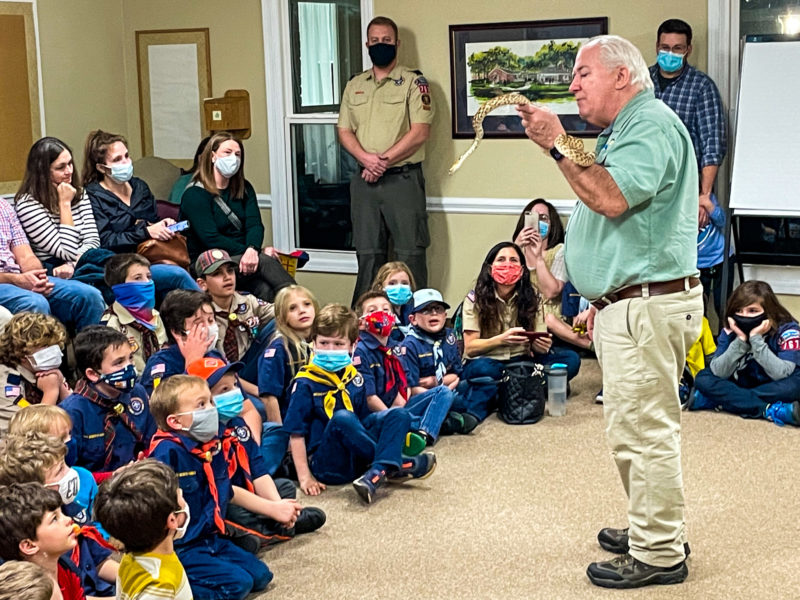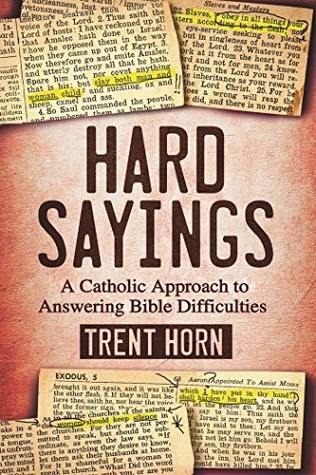People are using Google Maps to change the Russian Consulates into “Public Bathrooms”.
This is terrible and you definitely SHOULD NOT do this. pic.twitter.com/EEa4Mme6Ri— Walter Masterson (@waltermasterson) February 27, 2022
Atlanta 2022

We spent the weekend in Atlanta — it was, in short, an emotional roller coaster for the girls on L’s volleyball team.
The first day was excruciatingly tough. They lost their first game in straight sets, but it was even more discouraging because they were winning set 2 by 9 (14-5) before ending up losing 19-25. That means the opponents outscored them 20-5 at that point.

The second game didn’t start any better: they lost the first set 13-25. That, ladies and gentlemen, is a tough loss. It prepared them mentally for the loss in the second set 14-25.
By then, they were wasted — done. The third game went down just like the second game: 12-25 and 14-25.
Today, we parents all wondered how things would pan out. I was worried that they might not win a set the whole weekend. The teams at Atlanta were just much stronger, as a whole, than what they were used to. In addition, they were broken mentally. How would it go?

The first game started out just as we feared: they held it together but at 19-19, it seemed like they were falling apart. They pulled it back together, though, and took it into extra points, but they ended up losing 26-24. So close. Set two — would it continue? At one point, they were down 10-16, and I thought, “Well, there’s another one. And if they lose this set, I’m afraid the day is done.” But they kept fighting and ended up taking the set 25-22. They cheered like they’d won a medal.

In the third set, they were tied at 14 and L made a huge hit to put them within one point of winning their first game. But it wasn’t to be: the opponents tied it up. The next play, L made another monster kill and they had another game point. Again, they lost the next point. It kept going like this, but the finally managed to convert a set point, winning 21-19. It was as if they’d won gold in the Olympics.

The final game of the day followed the same pattern. They lost the first set 20-25 but tied it the second set after almost letting a 23-19 lead slip through their fingers: they won 25-24. And finally, in the third set, they dominated: 15-6.
More Pics from Savannah
Heroes and —holes
WATCH: One man single-handedly trying to stop the Russians and letting them know they are not wanted in Ukraine. #RussiaUkraineWar #ukraine #Kiev pic.twitter.com/Pmtw4nZX5I
— Reporta (@reportanews) February 26, 2022
https://twitter.com/NewsReaderYT/status/1497358183458910210?s=20&t=QF5Jz5ZJbXRKACmBUkDw4Q
https://twitter.com/vikkykim1104/status/1497299831164968966?s=20&t=QF5Jz5ZJbXRKACmBUkDw4Q
https://twitter.com/Aryabhata99/status/1497411546305245191?s=20&t=QF5Jz5ZJbXRKACmBUkDw4Q
That's call a Humanity ❤❤🙂🙂#RussiaUkraineWar pic.twitter.com/f0oZdsBgO6
— Mohammed Jabir 🇸🇦 (@Mohamme70422041) February 26, 2022
BABIES. Babies in the neonatal ward in #Ukraine were lowered into the hospital bunker. God bless the nurses! #RussiaUkraineWar (via Dr. Denis Zurkov) pic.twitter.com/nIePKjzyqB
— Josh Benson (@WFLAJosh) February 25, 2022
https://twitter.com/hanisep1ta/status/1497176302163578881?s=20&t=QF5Jz5ZJbXRKACmBUkDw4Q
Lauren Witzke, the Delaware GOP's candidate for Senate in 2020, has nothing but praise for Putin and "his Christian nationalist nation": "I identify more with Putin's Christian values than I do with Joe Biden." pic.twitter.com/oQ2nhlVGCR
— Right Wing Watch (@RightWingWatch) February 24, 2022
This Russian war crime got caught on camera. #Ukrainepic.twitter.com/M4XNegFViF
— Grant Stern grantstern.bsky.social (@grantstern) February 25, 2022
— Lisa Shymko (@LisaShymko) February 22, 2022
Outside Time
The promise of the coming summer begins to show itself when, during our monthly outside reward time, kids run around in shorts and short sleeves and get sweaty. Adolescent funk — nothing like it.

Blue and Gold and Bullies
There are a lot of things in the world that we might initially fear for no justifiable reason other than something deep within us says, “Run!” There are other things that seem completely harmless and yet can kill. How do we tell them apart?
Fortunately, in nature, evolution provided us with handy indicators: colorful creatures often are creatures we should avoid. Think of a coral snake. Bands of color warn us that this is a creature to avoid. Yet the scarlet king snake has very similar colors as an adaptive measure: it’s harmless, but it looks deadly. We stay away out of an abundance of caution.

E’s scout pack had their Red and Gold Banquet tonight to celebrate the birthday of scouting. There were the usual scout meeting elements: a flag ceremony, recitation of the scout oath and law as well as the pledge, announcements, and the like There was a pleasant meal with friendly chatter. And there was something new: a visitor who brought a number of animals with him. There were snakes and frogs, insects and lizards, a couple of scorpions, some snakes, and a tortoise. Scouts got to handle some of them but mainly just look. One of the scorpions had venom in its stinger that could kill a human. It, of course, stayed inside its box.
The highlight of the evening was the albino python that required seven minders plus the handler to hold. E got to hold a tarantula, which I thought he might back out of when the moment came. He looked over at me, though, getting a reassuring thumbs-up, he went ahead and conquered that fear.

“The legs were hair and tickled a little,” he said on the way home.
Often people are the same as animals: they make clear with their words and actions that they are a threat, that they are someone that others need to deal with early on before things escalate. Russia’s attack on Ukraine was no surprise: Putin puffed out his chest, spread his tail, rattled his tail, flattened his hooded face, hissed, growled, clicked, and grunted, and the rest of us just contented ourselves with the thought that, like the scarlet snake, he only looked dangerous.
But we knew he was dangerous. All his words and deeds showed us that. Now we’re talking about draconian sanctions and such long after the time it could have actually helped. If we’d completely isolated Russia after it annexed Crimea, if we’d made life for its oligarchs all but impossible by completely cutting them off from all access of their incredible wealth held in Western banks and hedge funds, we might have affected some kind of change. But doing that now is a little like signing up for a self-defense course as you hear home invaders breaking down your door: too little much too late.

All the media outlets are running stories about how this changes everything, about how this is the greatest threat to Europe since World War 2, about how this will affect Russia and the rest of the world for years to come, and I think that’s an appropriate reaction. However, we should have had that reaction when they annexed Crimea. We should have had that reaction when they attacked Georgia. We should have known what kind of man we were dealing with when Putin began publishing pictures of himself without a shirt, puffing out his chest, riding horses.
It’s no wonder Trump gets sexually aroused just thinking out this guy. He’s everything Trump wants to be. It’s no wonder he’s praising this guy. He’s the cool bully in class that all the pimple-faced asshole bully-wannabes want to hang out with to get a little street credibility.
Data
Pics from Yesterday and a Teacher Reality




New Record for the Boy
Twenty-six miles on a bike today.

Croft Ride and Savannah Tournament








Boys’ Saturday
We started with an early soccer game — 8:15. On the way there, we drove by his school at just about the time he’d be arriving for a normal school day.

Somehow, the boys lost their second consecutive game. I say “somehow” because for 90% of the game, they dominated. They kept the ball in their opponents’ half of the field, and I’d say they had at least 25 shots on goal. Their opponents maybe had 6-8 shots on goal — but one of them went in. That’s the only difference, but that’s the most important difference.

After the game, a little relaxation for the Boy, with a quote from a favorite movie of mine — modified, somewhat.
Late morning was honey-do list time — including getting some final details set for K’s new workstation.

I’m not jealous of her computer, but I’m envious of that desk!

Afternoon — bike ride. What else?

Hot dogs for dinner — the Boy on the grill.

Untitled Composition
Question-Begging
 In the introduction to Hard Sayings: A Catholic Approach to Answering Bible Difficulties, Trent Horn quotes Dan Barker’s succinct point about the Bible: “An omnipotent, omniscient deity should have made his all-important message unmistakably clear to everyone, everywhere, at all times.” By this, Barker of course means that a god who is all the things the Christian god is supposed to be would send a message that couldn’t be so easily misunderstood, so easily used to justify so many conflicting ideas, as the Bible is.
In the introduction to Hard Sayings: A Catholic Approach to Answering Bible Difficulties, Trent Horn quotes Dan Barker’s succinct point about the Bible: “An omnipotent, omniscient deity should have made his all-important message unmistakably clear to everyone, everywhere, at all times.” By this, Barker of course means that a god who is all the things the Christian god is supposed to be would send a message that couldn’t be so easily misunderstood, so easily used to justify so many conflicting ideas, as the Bible is.
There would be no difficult scriptures. For example, from the Catholic point of view, references to the “brother of Jesus” are troubling because Mary was, according to the Catholic Church, always a virgin. There was no way then that Jesus had brothers. How do we explain this, then? Well, in Aramaic, there is no term for “cousin.” Everyone is a “brother.” So that’s what the passage means. The only problem is that, although Jesus and his disciples would have been speaking Aramaic, the Gospels were written in Greek, a language that does have a word for cousin. In that case, why didn’t the Christian god inspire the gospel writers to say “cousin” and avoid all this confusion?
Horn responds to Barker’s claim most curiously:
I agree with Barker that God should provide an opportunity for all people to be saved since 1 Timothy 2:4 says God wants all to be saved. But that is not the same thing as saying that the Bible should be easily understood by anyone who reads it. Perhaps God has given people a way to know him outside of the written word? For example, St. Paul taught that God could make his moral demands known on the hearts of those who never received written revelation (Rom. 2:14-16). The Church likewise teaches that salvation is possible for those who, through no fault of their own, don’t know Christ or his Church.
Yet Barker never said anything about salvation. It’s not that Barker’s argument is that this god is doing a bad job of getting his salvific message out, but that’s what Horn’s response suggests. “No, no!” says Horn, “it’s not that people might lose their salvation over a confusing book. God also, according to St. Paul, communicates directly with people’s hearts.” In Horn’s strawman argument, Barker accepts that there is a god who wants everyone to be saved but just feels that this deity could be doing a better job of communicating that plan. But Barker is arguing the opposite: the massive amount of confusion stemming from this book suggests that is has a most decidedly human origin with no divine influence whatsoever. He’s arguing from the book to the hypothetical god that would have created it and saying that there is a significant incongruity between that hypothetical god and the Christian god.
Not only that, but Horn is quoting the Bible (Rom. 2:14-16) to provide evidence of his rebuttal (that God provides other means of salvation rather than through the knowledge gleaned from his book) when in fact it’s the Bible’s validity itself that’s at stake.
The problem is that for Horn, it’s impossible to see how someone could not accept the Bible as divinely inspired. He’s working with that presupposition so firmly in his mind that he doesn’t even realize when it causes him to go question-begging as he does in this response.
Dead Door
“Today’s the day we kill them off!” I declared as we started class today. We acted the entire fifth act in class. All three scenes amount to little more than half of act one, I’d say. They enjoyed it, I think. Kids said, “You know, you were right: I couldn’t understand Shakespeare at all when we started, but now I don’t even feel I need to look at the simplified version most of the time.”

In the afternoon, we got word about our homeroom’s door decoration: we won second place in the school. First place — another class on our team. Third place — another eighth-grade class. Our grade swept them! Our team took the top spots!

A fun day to be an eighth-grade teacher.
Faking It
Juliet is dead now — at least in the eyes of her parents and extended family. Instead of marrying Paris today and going off to live in bliss as her parents anticipated, she has died in her sleep.

It’s strange how easily Friar Laurence manages to steer the family away from all thoughts other than the one he most desperately desires: get her buried as soon as possible, for who knows — from his perspective — what will happen if his potion wears off before they get her in the family crypt.
But why isn’t Capulet more concerned with what happened? How could a young girl die so suddenly? I think the notion, prevalent then, that someone could die of a broken heart goes a long way in explaining this. For Capulet, it’s easy enough just to accept the fact that Juliet never really got over her sorrow for Tybalt’s death, and it was of that broken heart that she died.
Soccer Practice
It’s that time of year that includes “spring” in many things in the South (like “spring soccer season”) yet has weather most assuredly not-spring-like. We arrived at soccer practice at 6:30, and it was 54 degrees. By the time we left ninety minutes later, the temperature had dropped 11 degrees.

“My big toe is numb!” the Boy declared.
The Climb
It’s a bit steeper than it appears.
Spring 2022 Season Opener
We’re on a new team this year.

We were hoping for a change for how things went last season (i.e., not winning a single game and drawing only once).

Sadly, it was more of the same: 0-2.
Clerical Error
A curious story appeared in Newsweek the other day that highlights some of the quirks of Catholicism. Apparently, a priest there has been saying the wrong words during baptisms, which makes the baptisms invalid:
A priest with over two decades’ worth of service to multiple congregations has resigned “with a heavy heart” in the wake of revelations that he incorrectly performed baptisms.
Father Andres Arango, who most recently served in the Roman Catholic Diocese of Phoenix, Arizona, was found to have used the wrong phrasing.
When performing the sacrament, Arango would say, “We baptize you in the name of the Father, and of the Son, and of the Holy Spirit.”
However, as the Vatican’s Congregation for the Doctrine of the Faith made the diocese aware, the use of the word “we” made the baptisms “invalid.” Instead, Arango was supposed to use the phrase “I baptize” rather than “we baptize.” (Source)
So all these families have been taking their children to the priest to say the right words in order to remove the effects of the apple curse and safeguard their children from the horrors of hell, and this guy has been saying the wrong words! According to Catholic teaching, if they’re not validly baptized, they’re not saved. If they died still a child, then they go to limbo heaven — I forgot, the Catholic church changed that teaching when enough people protested that the idea of infants going to limbo for eternity was unconscionable. (Does this mean that all the infants in limbo never were in limbo, or did they get a “Get out of limbo free” card?)
For the poor schmucks who made it to adulthood and thought they were freed of the effects of the talking-snake-induced apple curse, it’s another story. These folks died in the assurance of heaven only to awaken in the next life to the surprise of, well, not just their lives but of eternity.
“Um, excuse me, I think there’s been some kind of mistake,” they shriek, doing their best to maintain some kind of professional decorum.
“No, no mistake,” the demon idly pulling their intestines out and wrapping them around its forefinger says, almost sounding bored.
“Yes, I think there was. You see, I was baptized.”
The succubus pauses for a moment, tightens the ringlets of intestine just a bit, yawns and says, “No, I’m afraid you weren’t. You see, Father Arango said ‘we baptize you’ when all decent priests know the correct words are ‘I baptize you.’ A simple clerical error, to be sure, but nonetheless, an error.”
“But, but!”
The demon becomes irate: “Now look here — we don’t make the rules about these or those magic words. We’re just as bound to the formalities as you are.” He gives a good tug, dislodging the large intestines. “You’d have to take that up with God.”
“Where is he?”
“Not here,” giggles the tormentor…
All joking aside, there are lot of people now unnecessarily mentally tortured with the thought that their loved one is in fact in hell because of a priest’s mistake. Just how many people might be going through this?
Katie Burke, a spokesperson for the Diocese of Phoenix, told Newsweek that while the diocese has no exact number of invalid baptisms Arango performed, the number is “in the thousands.”
Thomas Olmsted, bishop of the Diocese of Phoenix, wrote a January 14 letter to his congregation informing them of the invalid baptisms. He said it is his responsibility to be “vigilant over the celebration of the sacraments,” adding that it is “my duty to ensure that the sacraments are conferred in a manner” consistent with the Gospel and the tradition’s requirements.
I guess Father Arango should have realized the importance of using the proper words…
Circles and Spirals
I’m reading Trent Horn’s Hard Sayings: A Catholic Approach to Answering Bible Difficulties. He speaks of Karl Keating’s argument for scriptural inspiration, saying “when taken as just a reliable human document, the Bible shows that Christ not only rose from the dead, but that he established a Church built on the apostles.” These apostles “were then able to authoritatively declare the Bible to be the word of God.” So the Bible proves the church and the church proves the veracity of the Bible. That’s called circular reasoning, isn’t it? Horn doesn’t think so.
This is not a circular argument, in which an inspired Bible is used to prove the Church’s authority and the Church’s authority is used to prove that the Bible is inspired. Instead, as Keating says, it is a “spiral argument,” in which the Bible is assumed to be a merely human document that records the creation of a divinely instituted Church. This Church then had the authority to pronounce which human writings also had God as their author.
The level of cognitive dissonance in this statement is absolutely astounding. He can assert that calling it a “spiral argument” somehow removes the circularity of the argument, but in essence, he is still using the Bible to prove the Church to prove the Bible. No Christian ever regards the Bible as “a merely human document.” People regard the Bible as authoritative because they see it as divinely authored. I get that this is a distinctly Catholic explanation of things, but no Catholic ever sees the Bible this way, either. It is, defacto, divinely inspired in their eyes. The so-called divine nature of the Catholic church is in no way illustrated in the pages of the Bible, and we still have the basic problem of Biblical error: how are we to know that that particular portion of the Bible detailing the founding of the church is accurate? In short, we don’t. We have to take that on faith. And who is the one explaining all of this? The Church. So the Church says the Bible is just a humanly written document that proves the Church is divinely inspired, which then proves the Bible is not just a humanly-written document.
It’s almost as convoluted as God impregnating Mary to give birth to God to die to appease God’s anger, which is the story of Christianity in its most simplistic form.














